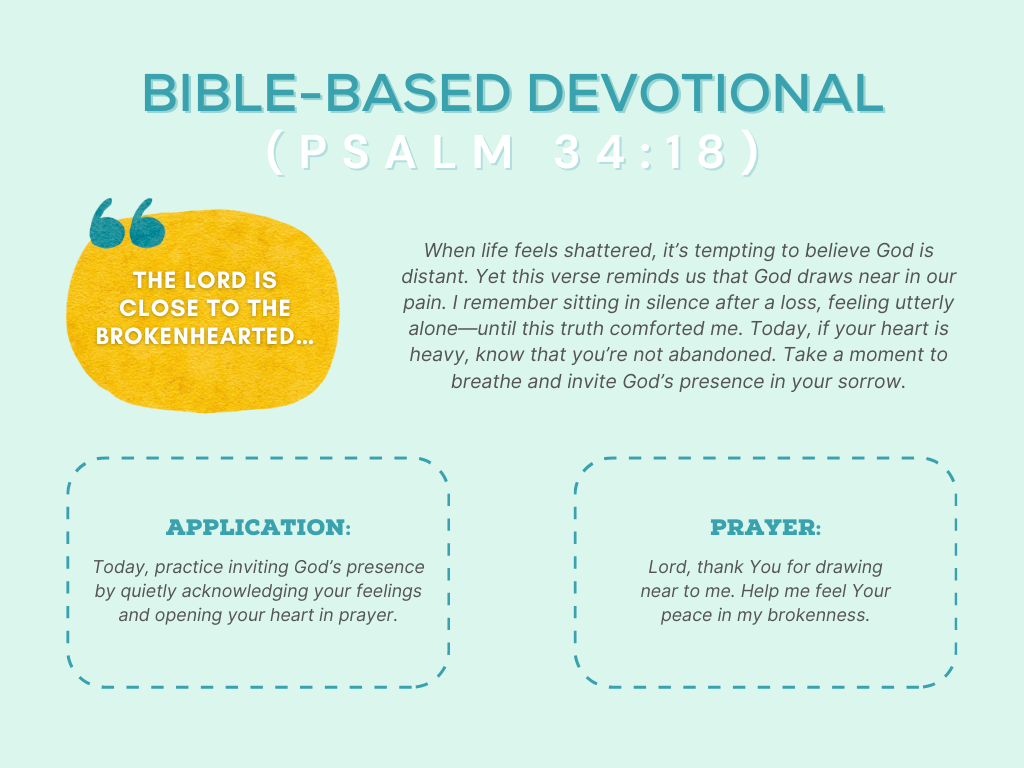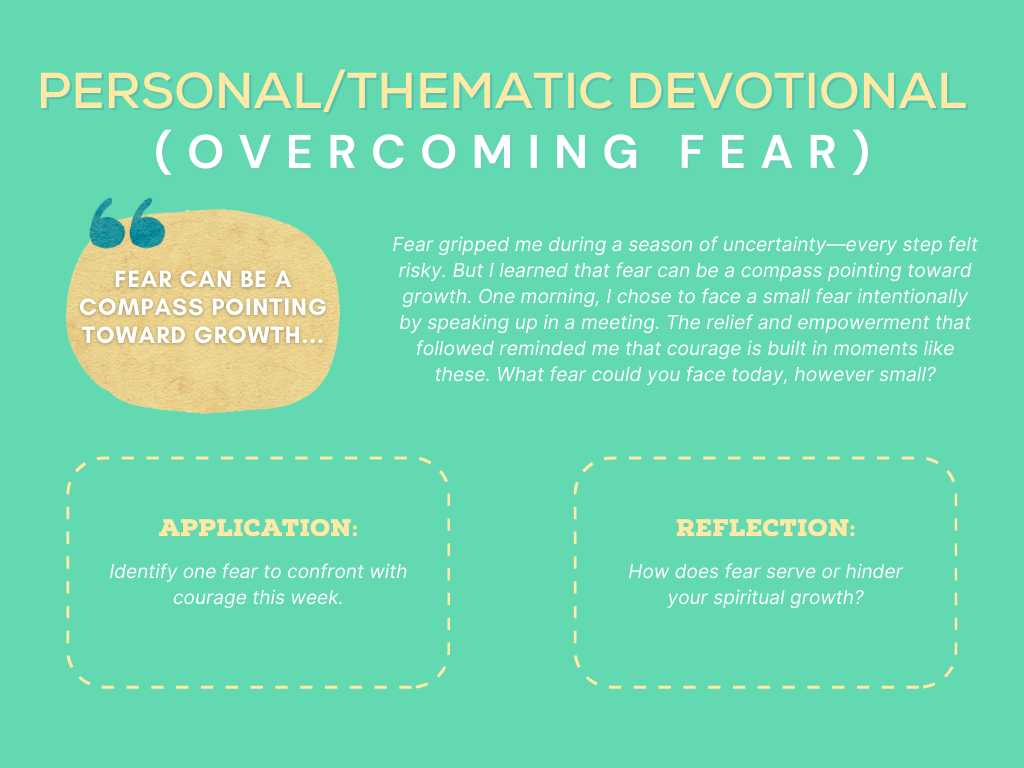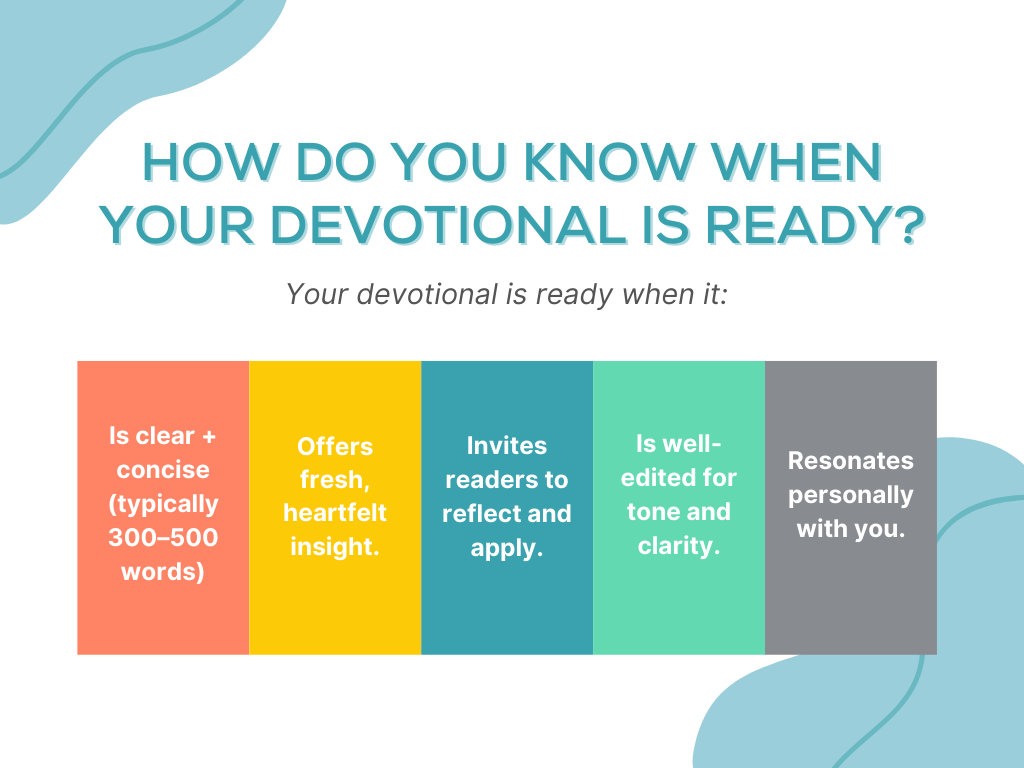
A Writer’s Guide to Crafting Inspiring Spiritual Reflections
Writing a devotional is a unique and deeply fulfilling creative endeavor. Whether rooted in Scripture or broader spiritual themes, devotionals offer readers moments of pause, reflection, and encouragement in their daily lives with writing that blends heart, insight, and connection.
In this post, we’ll walk you through the essentials of devotional writing across different styles—from traditional Bible-based devotionals to spiritually-inspired and personal-themed reflections. This balanced approach will help you decide the style that fits your voice and audience, and give you practical tools to create devotionals that truly resonate!
What Is a Devotional, and What Forms Can It Take?
At its core, a devotional is a brief, thoughtful piece designed to inspire reflection, often daily or weekly. While many devotional writers focus on Scripture, devotionals can also be built around spiritual insights, life experiences, or universal values.
Here are three common types of devotionals, each serving a valuable purpose and meeting different reader needs:
Bible-Based Devotionals
Centered on Scripture verses or passages. The goal is to illuminate biblical truth, deepen faith, and provide practical application grounded in the Bible.
Spiritually Inspired Devotionals
Rooted in spiritual themes like gratitude, mindfulness, or compassion. They may draw from various religious or philosophical traditions, sacred texts, or universal spiritual principles.
Personal or Thematic Devotionals
Often more narrative-driven, these devotionals focus on personal stories, life lessons, or moral reflections designed to inspire and uplift without necessarily citing sacred texts.
How Do You Choose Your Devotional Style and Focus?
For Bible-Based Devotionals:
Start with Scripture that speaks to you deeply. This could be a verse you find challenging, comforting, or revelatory. Your job is to connect this ancient text to modern life and invite readers to do the same.
Ask:
What does this passage reveal about God or faith?
How can it encourage or challenge readers today?
For example, a devotional on Romans 12:12 (“Be joyful in hope, patient in affliction, faithful in prayer”), written during a difficult season, might offer practical steps on cultivating patience.
For Spiritually Inspired Devotionals:
Choose a universal spiritual theme—like peace, gratitude, or forgiveness—and explore it through reflective writing, quotes, or teachings from diverse traditions.
Ask:
What spiritual wisdom resonates with me on this theme?
How can I make these insights accessible and practical?
For instance, a devotional reflecting on gratitude might weave in a quote from the Buddha alongside a personal story and an invitation to a daily gratitude practice.
For Personal/Thematic Devotionals:
Consider sharing a story or lesson from your life that holds a spiritual or moral truth. This style can be particularly compelling because of its authenticity and relatability.
Ask:
What experience taught me something meaningful?
How can my story inspire or comfort others?
I’ve seen writers share reflections on healing from grief or overcoming fear, connecting their stories to broader spiritual truths without specific Scripture references.
What Structure Helps Devotionals Connect with Readers?
Regardless of style, a clear and inviting structure is key. Here’s a flexible framework that works well across devotional types:
1. Anchor (Scripture, Theme, or Story): Start with your verse, spiritual concept, or personal anecdote to set the tone.
2. Reflection: Share insights, observations, or lessons that unpack the anchor.
3. Application: Offer practical ways readers can live out the truth or theme you’ve explored.
4. Closing: End with a prayer, affirmation, or a question to encourage further meditation.
This simple yet effective pattern respects readers’ time while inviting deeper engagement!
Writing a Devotional That Feels Authentic and Fresh
The best devotionals speak from the heart. Here’s how you can ensure your writing feels genuine and fresh:
✢ Be vulnerable: Share real emotions and struggles that connect with readers’ experiences.
✢ Use specific details: Concrete imagery, sensory descriptions, and personal anecdotes make abstract ideas come alive.
✢ Ask thoughtful questions: Engage readers with questions that invite introspection instead of offering easy answers.
✢ Draw on diverse sources: For spiritually-inspired devotionals, include quotes or insights from various traditions to enrich your reflections.
✢ Avoid overused clichés: Find unique metaphors or fresh ways to express familiar themes.
Examples of Devotional Types
To help bring these different devotional styles to life, here are some brief examples that showcase how each approach can uniquely inspire, challenge, and uplift readers. Whether rooted in Scripture, drawn from universal spiritual wisdom, or shaped by personal experience, these samples highlight the variety and richness devotional writing can offer.



Mistakes to Avoid When Writing a Devotional
Even with the best intentions, it’s easy to trip up when writing devotionals. Knowing what to watch out for can make all the difference in creating something readers actually connect with.
Here are a few common mistakes devotional writers make:
✢ Being Too Abstract or Vague: Readers want something tangible to hold on to.
✢ Overloading with Information: Devotionals should be concise and focused, not exhaustive theological essays.
✢ Ignoring Your Audience’s Context: Consider cultural and spiritual backgrounds to stay relevant.
✢ Forcing Application: Let practical steps emerge naturally from your reflection.
Resources to Support Your Devotional Writing
Writing devotionals can sometimes feel daunting, but having the right tools at your fingertips makes all the difference. Here are some specific, practical resources tailored to different devotional styles:
For Bible-Based Devotional Writers
For Spiritually Inspired Devotional Writers
✲ The Book of Joy by the Dalai Lama and Desmond Tutu
✲ Insight Timer Meditation App
For Personal/Thematic Devotional Writers
✲ Writing to Awaken by Mark Matousek
✲ The Artist’s Way by Julia Cameron

The Power of Your Devotional Voice
Whether your devotional centers on Scripture, universal spiritual truths, or your personal journey, your words have the power to comfort, challenge, and inspire. Writing devotionals invites you into a sacred dialogue—not just with your readers but with your own heart.
As theologian Frederick Buechner said, “The place God calls you to is the place where your deep gladness and the world’s deep hunger meet.” Your devotional writing can be that meeting place for many!
If you want help tailoring devotionals to your style or audience, or need editorial support, Atmosphere Press is here to help you bring your spiritual reflections to life.

Erin K. Larson-Burnett, Production Manager at Atmosphere Press (submit your manuscript here!), is a born-and-raised Southerner currently living in Katy, Texas, with her husband and their small domestic zoo. She is an avid ink drinker who lives and breathes books—during the day, she works remotely with authors around the world, honing and perfecting books published through Atmosphere Press. By night, she crafts her own stories…or at least tries to. The Bear & the Rose is her debut novel.

Atmosphere Press is a selective hybrid publisher founded in 2015 on the principles of Honesty, Transparency, Professionalism, Kindness, and Making Your Book Awesome. Our books have won dozens of awards and sold tens of thousands of copies. If you’re interested in learning more, or seeking publication for your own work, please explore the links below.
